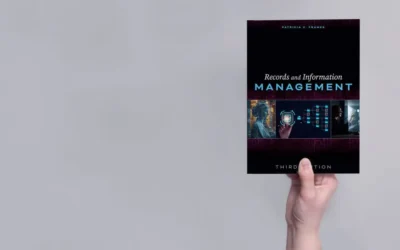Interview with Networking Expert Alana Muller
Lauren Hays
A few years ago, I had the opportunity to hear Alana Muller speak about networking. I am an introvert and prefer a few close relationships over many acquaintances, so networking is not something I was naturally drawn toward.
However, Alana’s approach to networking changed my mind, and I have become much more comfortable being purposeful about connecting with others.
As more jobs are now hybrid or remote, I wanted to reconnect with Alana about how best to engage in networking. My interview with her is below. First, though, I want to share Alana’s brief biography:
Alana Muller, an entrepreneurial executive leader whose primary focus is to connect, inspire and empower community, is Founder and CEO of Coffee Lunch Coffee. She is a Networking speaker, strategist, workshop facilitator, coach and author of the books, “Coffee Lunch Coffee: A Practical Field Guide for Master Networking” and the anthology “Growth – Deconstructing GRIT Collection,” and a blog, CoffeeLunchCoffee.com.
Alana is the host of Enterprise.ing podcast, a weekly columnist for Bizwomen.com, and has been a contributor to Forbes.com, The Huffington Post, CNBC and other publications. She has a master’s degree in business administration from the University of Chicago, where she was the recipient of the Mike and Karen Herman Fellowship for Women in Entrepreneurship, and an undergraduate degree in mathematics from Smith College. She is actively engaged in the community and serves on a number of corporate and volunteer boards.
Lauren: Please share your philosophy of networking and briefly explain the importance of connection for professional growth.
Alana: I believe that networking is nothing more than the sum of connections, community and belonging. As human beings, we have a need to connect with other people. We satisfy this need by establishing community everywhere we go — in our neighborhoods, at work, in coffee shops, etc. We do this because, as it happens, belonging feels good! It feels especially good to belong to something bigger than ourselves and networking allows us to achieve this. Plus, in this day and age, we simply can’t afford to not incorporate building relationships into our lives.
Lauren: Now that many jobs will remain hybrid or remote, what strategies do you recommend for people seeking to network? What strategies do you suggest for people who work remote and want to network with others in their company?
With a number of jobs remaining hybrid or remote, establishing and maintaining meaningful, authentic connections is more important than ever. That goes for inside and outside of your company. Here are a few ideas for ensuring that we can foster solid relationships despite a degree of isolation:
- Connect and Reconnect. Think of at least one person you have wanted to connect or reconnect with and reach out. It could be a colleague, a business prospect, an old friend… anyone! Send them a quick note. See if they are interested in an in-person or virtual cup of coffee to touch base. They will be glad to hear from you. You’ll be glad you reached out. Something good will come of it for you both. If getting together is not possible, there are other ways to engage — send letters, birthday cards, anniversary cards, et al. Handwritten correspondence goes a long way to building social capital.
- Ensure a Good “On Camera” Presence. If your employer uses Zoom, Microsoft Teams, or another similar video communication platform, put it to good use. Make sure your lighting is good (shine a light on your face… no backlighting… use a ring light or sit in front of a window, if possible), your camera is clean, your audio is solid, and turn on your video so that people can see you. It’s not the same as being face-to-face and in-person, but it is an excellent way to remind others what you look like and that you are still maintaining a professional disposition — even working remotely. By the way… that may mean that you are still sporting athleisure attire, but that you are well-groomed and ready for the day!
- Get Out and Get Involved. Though you are working from home, there is no need to live like a hermit! Take breaks throughout the week to engage with others. Pack up your laptop or tablet and work from a cafe, hotel lobby or public library from time to time. You never know who you will run into and the change of scenery and human interaction will do you good. If the mood strikes, consider getting involved in the community in some way — could be by working on a neighborhood project, attending a fundraising event, or joining a committee or board for a cause you care about. Again, interacting with others is a useful way to show others what you’re made of, what your interests are, how you can be helpful, and to promote your company or organization.
- Establish a Virtual Water Cooler. For those of us working remotely, we are certainly running into colleagues less frequently than we used to! And, in some cases, we’ve never even met some of our co-workers in person. While the previously mentioned ideas are good for people you work with and don’t work with, to establish and ensure meaningful on-going relationships with other associates of your firm, why not create a virtual water cooler? That could mean organizing a virtual lunch ‘n’ learn featuring one person or department each week or month… hosting an on-screen happy hour for people to get to know one another… or hosting weekly office hours so people can “drop by” for a chat. Your colleagues will welcome the opportunity to engage — you will be a hero for convening them.
Lauren: How important do you feel in-person events such as conferences will be to the networking process moving forward?
Alana: The importance of in-person events such as conferences has shifted since the start of the pandemic. Professionals are excited to get back together, face-to-face and are taking this opportunity to re-emerge onto the professional scene. However, whereas much of our business was once primarily an in-person-only activity, one thing the pandemic taught us is that business goes on — even in a hybrid or remote space. As a result, attendance at conferences is less important for business development, though perhaps more important for social interactions. It is useful to test the culture of your industry vis-a-vis your own level of comfort going to potentially highly populated events.
Lauren: What is the first step someone should take who works in a remote position to start networking?
Alana: I always think a good first step is to make a couple of lists. The first is a list of people already in your relationship base who you want to reconnect with. This could include co-workers, clients, peers, mentors… anyone who you want to hold yourself accountable for reaching out to in the next 30 days or so. The second list should be comprised of people or organizations that you would like to get to know. These could be prospective clients, employers, industry experts, or just interesting members of the community who you’d like to meet. Reach out to them, too. By the way, the people on List #1 may be able to help introduce you to the people on List #2. Ask for a referral!
Lauren: Is there anything else you would like to share?
Alana: If anyone is interested, they should check out my twice-monthly podcast, Enterprise.ing, which is produced by Enterprise Bank & Trust. It’s for business leaders who want to build powerful connections and cultivate relationships. In each episode, I chat with different business leaders to learn how they’ve found success in developing and nurturing their professional networks. It is available wherever you get your podcasts including Apple Podcasts, Spotify, TuneIn, and Stitcher.
Lauren Hays
Lauren Hays, PhD, is an Assistant Professor of Instructional Technology at the University of Central Missouri, and a frequent presenter on topics related to libraries and librarianship. Her expertise includes information literacy, educational technology, and library and information science education. Please read Lauren’s other posts relevant to special librarians. And take a look at Lucidea’s powerful integrated library systems, SydneyEnterprise, and GeniePlus used daily by innovative special librarians in libraries of all types, sizes and budgets.
Never miss another post. Subscribe today!
Similar Posts
Texas Archive of the Moving Image: Interview with the Digital Archivist
I recently interviewed Grace Muñoz about her work at the Texas Archive of the Moving Image. Her work on improving the discoverability of the multimedia collection is fascinating.
Interview with Author and Librarian Dr. Jae Rossman on Special Collections and Archives
Dr. Jae Rossman wrote Access to Special Collections and Archives, available now from Rowman and Littlefield. The book is an excellent resource for special librarians who work with special collections and archival materials.
Interview with the Author: Dr. Patricia Franks on Records and Information Management
Dr. Patricia Franks is the author of Records and Information Management, now with an upcoming third edition to be published by ALA Neal-Shuman in the spring of 2025. My interview with her follows.
Are There Drawbacks to Using GenAI for Research?
Researchers must take responsibility for understanding how GenAI works and closely review literature search results before relying on them. Let’s take a look at three major drawbacks for researchers and special librarians to consider when leveraging or recommending GenAI platforms.




Leave a Comment
Comments are reviewed and must adhere to our comments policy.
0 Comments